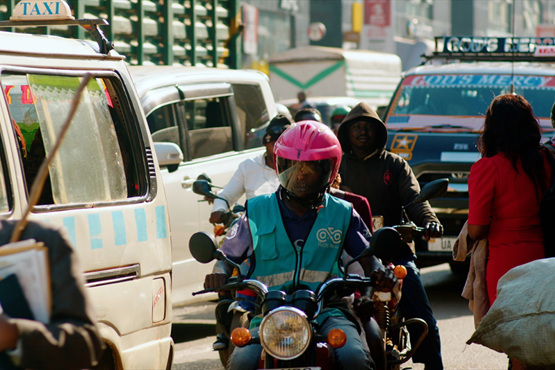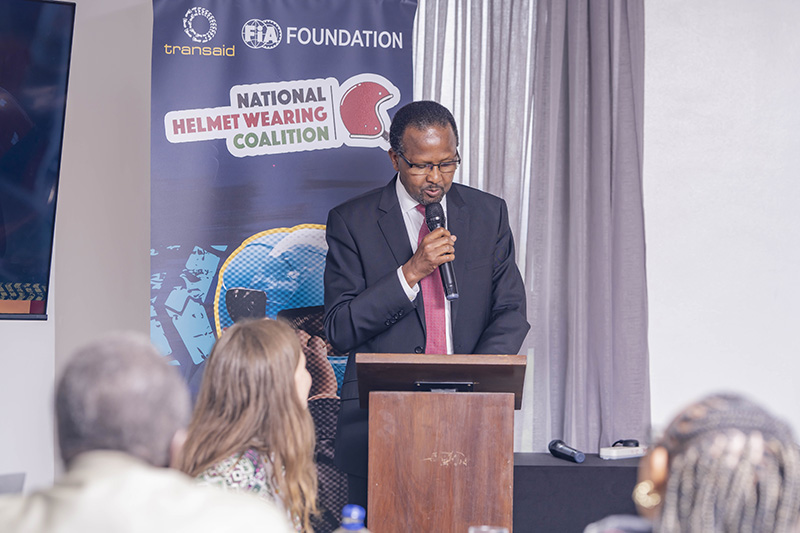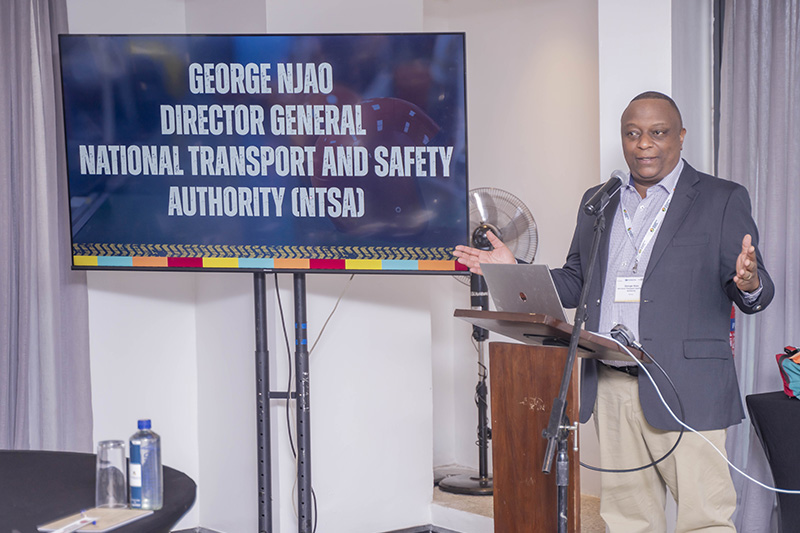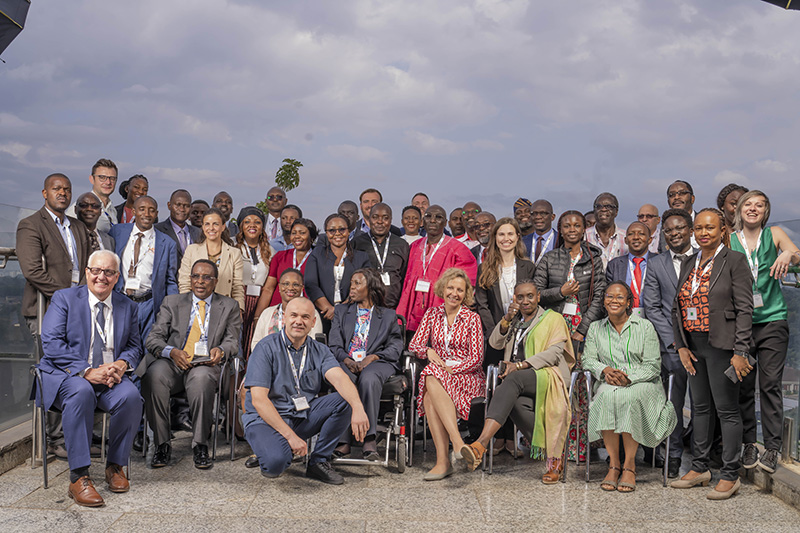SAHI Summit Nairobi: Driving regional helmet safety

The Safe African Helmet Initiative (SAHI) Summit brought together nine countries to focus on the way forward for motorcycle safety, organised by Transaid and the FIA Foundation in collaboration with AA Kenya and the National Transport and Safety Authority (NTSA).
SAHI is supporting global goals to halve African road deaths by 2030, of which motorcyclists are making up a rising proportion, and for every motorcyclist to wear a quality helmet. It is building a collaborative movement, supporting African Governments to take committed action to address motorcycle helmet safety, leveraging regional engagement, providing a forum for knowledge and skills exchange and leveraging technical capacity and resources.

The Summit brought together international and regional experts, policymakers, academia and community representatives from across the continent to tackle one of the region’s most urgent issues - motorcycle helmet safety. Motorcycle numbers across the region are skyrocketing, from just 10 million in 2010 to a predicted 55 million by 2030, and with them, rising deaths. Africa is the only region in the world to see growing road deaths, according to the latest WHO data.
Opening the event, Aggie Krasnolucka, Programmes Director at the FIA Foundation, outlined SAHI’s progress and strategic vision for expanding helmet safety across Africa. George Njao, Director General of the National Transport and Safety Authority (NTSA), delivered the keynote address, welcoming the SAHI Summit to Kenya and underscoring Kenya’s leadership in policy and enforcement to protect motorcyclists, particularly the informal motorcycle taxi sector, commonly known as boda bodas. His remarks reflected the strong governmental commitment to safety and regulation, as well as growing plans to enforce the use of quality helmets. Timothy Kelly of AA Kenya, a key partner of the Kenya Helmet Wearing Coalition, welcomed participants and emphasised the critical role of auto clubs in advancing safety for all road users. The opening sessions also heard about the injury context from Binta Sako from the World Health Organization, Patrick Kinyanjui, Regional Coordinator Africa, Global Alliance of NGOs for Road Safety linked the summit’s goals to the 2025 Marrakech Declaration from the Fourth Ministerial Conference on Road Safety, and Bright Oywaya of the Global Road Safety Partnership focused helmet safety challenge facing Africa.

Five countries, which were part of the inaugural SAHI workshop in 2024 - Kenya, Rwanda, Tanzania, Uganda, and Ethiopia – reconvened to share progress and strategy updates, while new countries – Burundi, Ghana, Senegal, Benin, and Cameroon – began mapping their key areas of focus. Supporting this work, they took part in ‘global café’ breakout sessions to lay practical groundwork for country-level action, with four topics: advocacy and awareness, helmet testing laboratories, data systems for powered two-wheelers, and enforcement strategies. Each country delegation then developed and refined individual strategies with support from peers and facilitators to address the key challenges and opportunities in their own contexts.
Throughout three days, panel sessions explored some of the many nuances of helmet safety ‘Reflections on Africa’s first helmet testing lab and need to replicate the initiative in other countries,’ the discussion emphasised the critical role of testing and certification in improving rider safety and creating accountability in manufacturing and supply chains with: Janvier Twagirimana, from the Rwandan Ministry of Infrastructure, Arnold Severine Mato, Tanzania Bureau of Standards; Terry Smith, Galeatus LLC; Nneka Henry, UN Road Safety Fund; Marisela Ponce de Leon Valdes, Sub-Saharan Africa Transport Policy Program (SSATP); and facilitated by FIA Foundation Programmes Manager Rafaela Machado. The session ‘The evolution of homologated helmet standards and the path from ideation to law’ heard from Samuel Mporanzi of the Rwanda Standards Board, and Eyuel Bogale of Ethiopia’s Road Safety Insurance Fund Service, while Terry Smith provided insights from a technical standpoint. Other sessions included the role of coalitions and boda boda associations, known as SACCOs, private sector engagement, harnessing media for change, enforcement, and concluded with a session on helmet safety from riders’ perspectives.

Closing the Summit, Aggie Krasnolucka presented the next steps for SAHI and reaffirmed the FIA Foundation’s commitment to supporting country-level implementation as well as regional mobilisation. Jinaro Kibet, AA Kenya Chairman, made closing remarks on the commitments made to closing the loop between standard setting, manufacturers, and enforcement, to ensure a safe helmet on every head.
Aggie Krasnolucka, FIA Foundation Programmes Director, said: “The SAHI Nairobi Summit has been more than a conference, it is a catalyst. We’ve seen strong leadership and commitment from NTSA, AA Kenya, and civil society in Kenya, as well as all our participant countries. We are seeing real momentum building across the continent thanks to the commitment, innovation, and collaboration of our SAHI partners here in Nairobi. We hope to see this drive continue to ripple outward -protecting lives and shaping policies to address the new reality of African mobility.”



